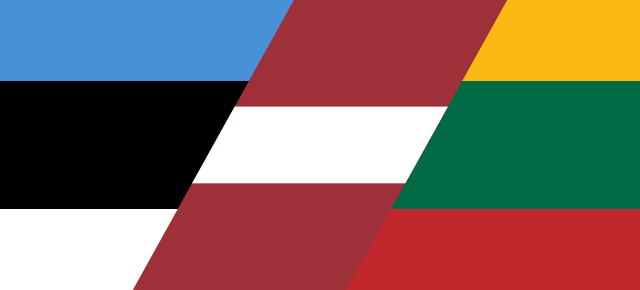
Baltic Books at London Book Fair 2018
Posted on April 21, 2018 in Uncategorized

The year has only just begun and already the publishing industry has seen London Book Fair (LBF), which took place 10-12 April, come and go. Each year, the fair welcomes another country or region to showcase their literature and their authors as the Market Focus, and this year it was the turn of the Baltic states: Lithuania, Latvia and Estonia.
The Baltic countries this year celebrate the centenary of their first independence, but it was much more recently that they broke free of the Soviet Union’s control (1990). Until that time, everything was state owned, censorship was rife and many books were banned. Speaking to LBF’s Author of the Day from Lithuania, Kristina Sabaliauskaitė, I was told how tapes, books and magazines had to be smuggled in and traded amongst the people. She also described how once independence was declared you would find people queuing down the street to buy copies of Plato and Socrates – the philosophical writings and ideals denied to them under the Soviet Union.
As a consequence, publishing is still young in these countries but in the last twenty years it has swiftly moved though the trends that we have seen in the west – from post-modernism to confessional poetry and more.
In November, I was lucky enough to visit Vilnius, capital of Lithuania, to find out a little more about their literary scene. Lithuania prides itself on its multicultural historical and literary traditions, rooted in languages including Polish, French and Yiddish, which form the foundations of today’s Lithuanian literature.
With a population of just 3 million, Lithuania has far fewer publishing houses than the UK (around 502). The output is also smaller, publishing around 4,500 titles a year with print runs of 900-1400. A book that sells 3,000 copies during two months is considered a bestseller. Interestingly, two of the biggest publishers, Alma Littera and Vaga, also hold the keys to the distribution line, owning the country’s two largest bookstore chains.
There is a general feeling amongst the people that books should be cheaper or even free. This is in part because of the Russian literature that was given for free during the occupation, but also due to the rate of tax. Where books are VAT exempt in the UK, in Lithuania the rate is 9% (also 9% in Estonia, 12% in Latvia). However, these rates are not applied to eBooks – a format that is surprisingly small for such a tech-literate county with the fastest broadband in the EU. It is, however, continuing to grow in popularity whilst our own sales of the format plateau.
I met with translators, who talked of the linguistic similarities between Lithuanian and Latvian, and brought to life the books that publishers hope to see brought to the UK. I met authors, who shared their experiences of the country both before independence – when the ever-hungry city was populated by tanks and defence was taught in school – and after. I met publishers who described the trends and influences of contemporary works, in particular fresh incarnations of stories from the past. Poetry is also an extremely popular genre, a trend that is echoed across the Baltic states. To get a taste of Lithuanian Literature, you can find a selection of translations at www.vilniusreview.com.
By Alice Geary (@alice_geary1)
Account Manager Midas PR 2017 UK Chair of SYP UK
Literary Highlights of Lithuania:
Vilnius University Library
Vilnius University Library was founded in 1570 and, whilst still part of the university, is now open to the public and hosts regular exhibitions. Held within the spectacular towers and courtyards of the evolving architecture of the university, it can be found in the heart of Vilnius Old Town, representing the history of Lithuanian science and culture progress.
Writers’ Union
The Lithuanian Writers’ Union is home to a collective of poets, playwrights, translators, reviewers and literature scientists, but it is also a beautiful building in its own right. Swathed in red and gilt, it was chosen as one of the key filming locations in the BBC’s War and Peace in 2016.
Literatų Street
Situated in Vilnius Old Town, nestled behind Cathedral Square, you will find Literatų Street, an open air gallery celebrating Lithuanian creative talent. Run by the Modern Art Centre in 2009, over 150 artists have contributed unique dedications that now adorn the wall. More than 200 writers are commemorated here, including Nobel Prize laureates, reflecting the colourful and multicultural history of Lithuania.




 Listen to the podcast
Listen to the podcast  Explore the Youtube channel
Explore the Youtube channel